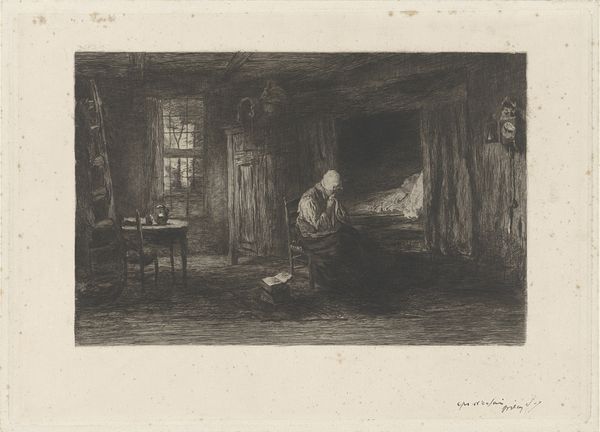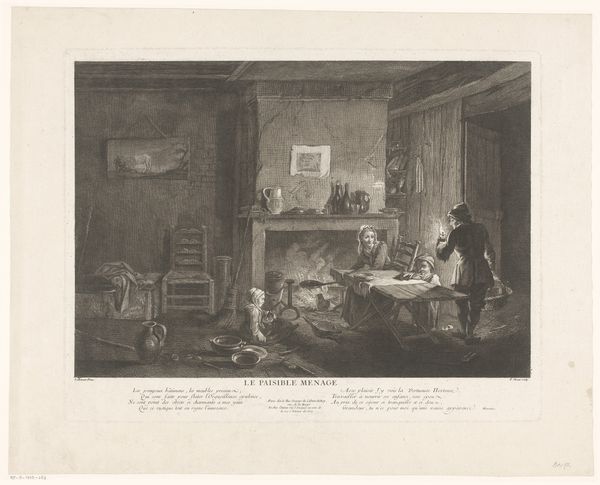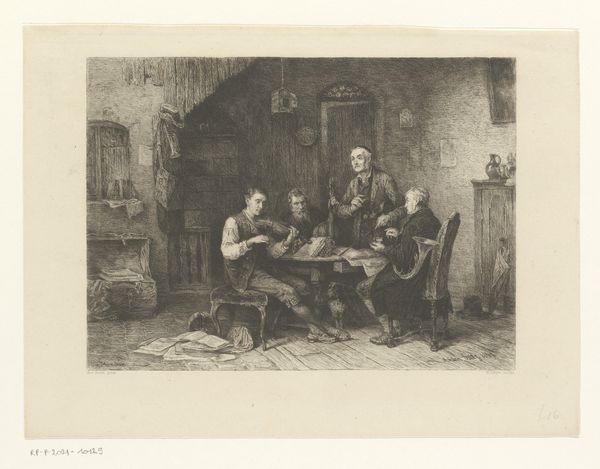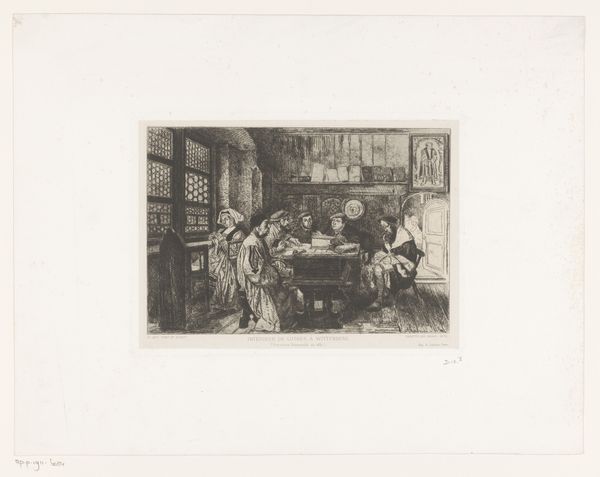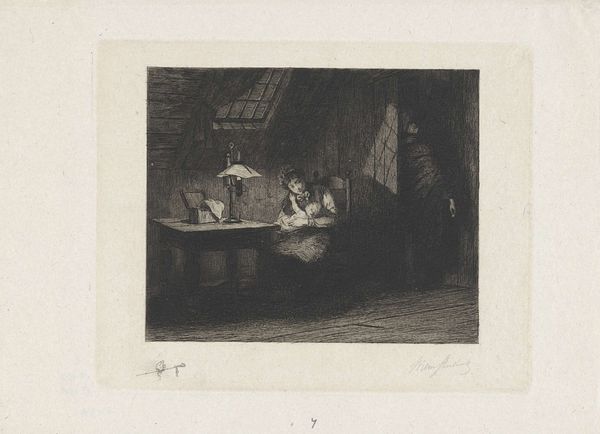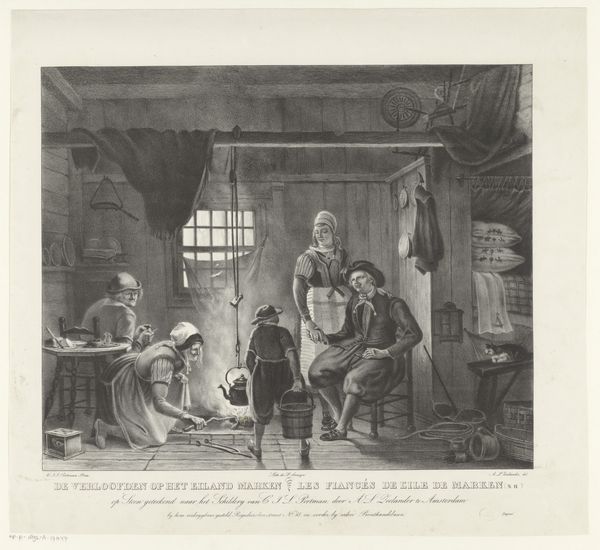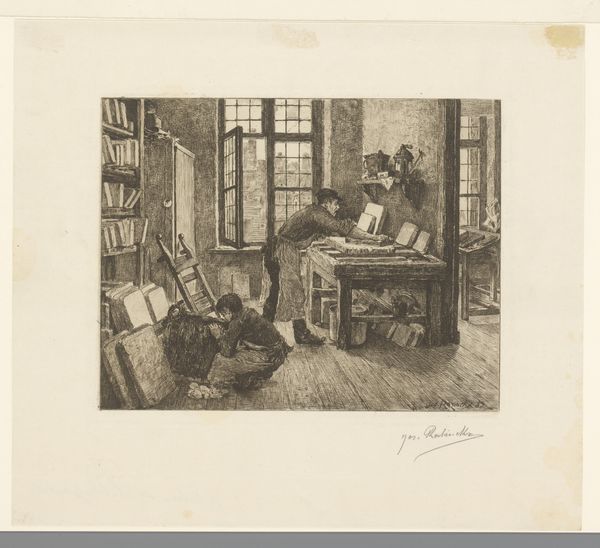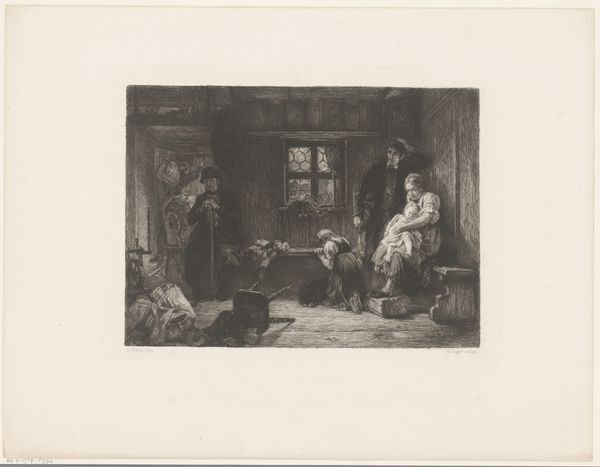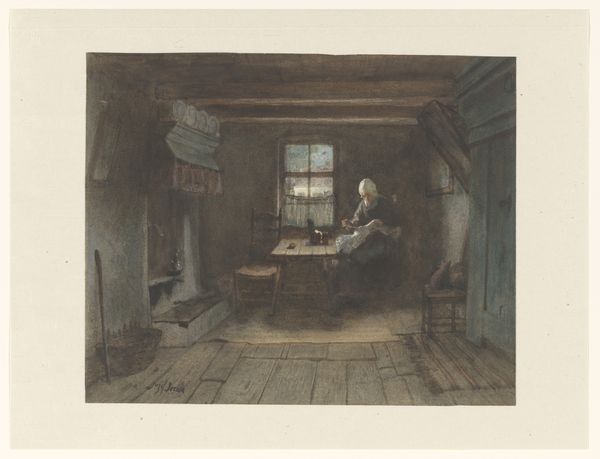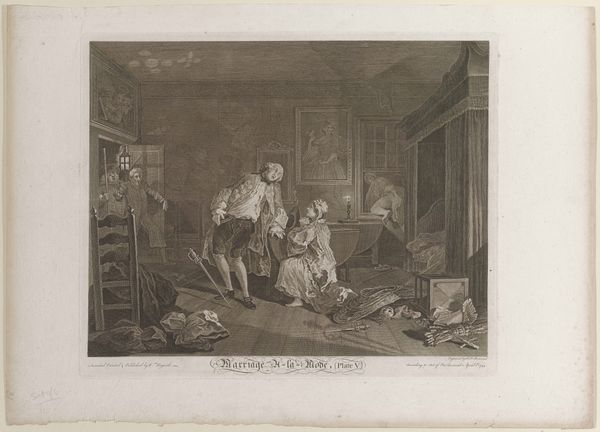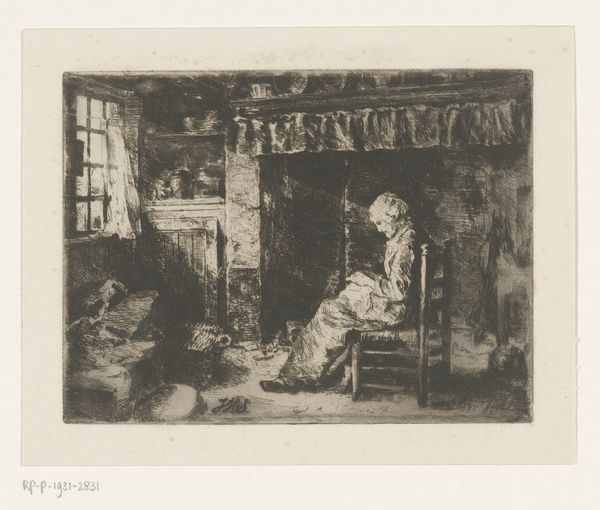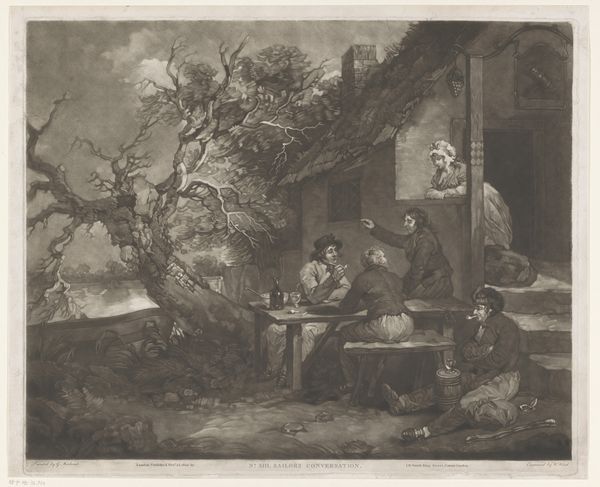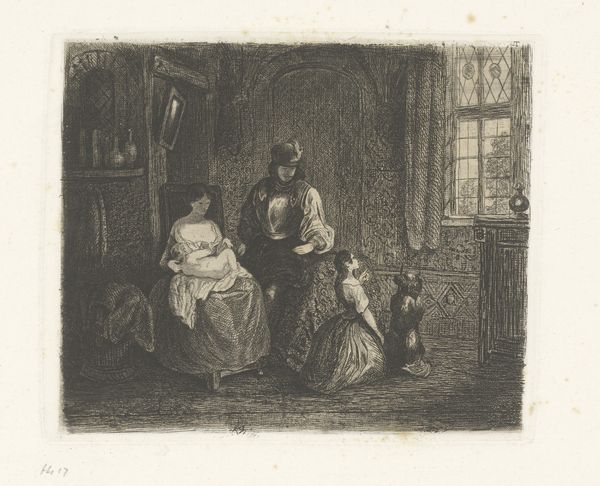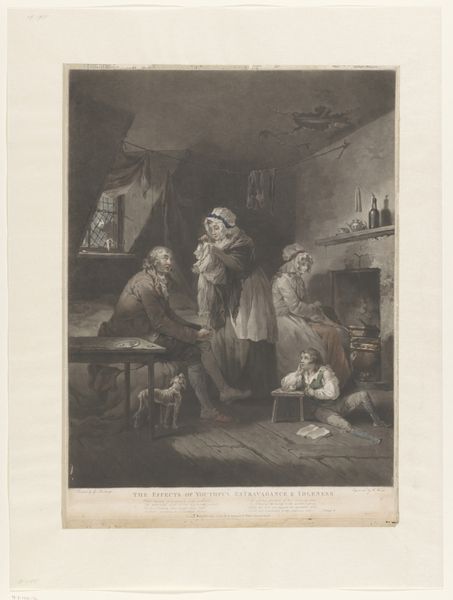
drawing, print, intaglio
#
print photography
#
drawing
# print
#
intaglio
#
landscape
#
historical photography
#
19th century
#
genre-painting
#
realism
Dimensions: height 382 mm, width 480 mm
Copyright: Rijks Museum: Open Domain
Curator: Lèon Richeton's 1881 intaglio print, "Interior of a Fisherman's Hut with a Man, Woman and Two Children," offers a glimpse into a humble domestic scene. Editor: My initial impression is one of quiet intimacy and perhaps a touch of melancholy, amplified by the limited light. Curator: Precisely. Note how Richeton uses light and shadow to structure the composition, dividing the interior into distinct zones. The contrast directs our attention to the central figures. It’s almost theatrical. Editor: Yes, but what's being "staged" here? The stark realism speaks to the harsh lives of fisherfolk in the 19th century. The woman's weary posture, the child’s simple toy—it all points to material deprivation and perhaps a commentary on class disparity. Curator: An interesting angle. I would also encourage one to look closely at the varying line weights and textures. The rough, dense hatching evokes the gritty atmosphere of the hut, whereas the smoother rendering on the figures softens them. It’s masterful. Editor: Indeed, but I'm struck by the power dynamics implicit here. The man occupies the privileged space by the fireplace while the woman and children are confined by the window and table. Is the artwork reflecting or challenging those roles? Curator: It’s certainly food for thought, but the strength of Richeton’s formal technique should not be undervalued. His use of perspective is interesting. Note how the artist makes strategic use of perspective, compressing space to convey feelings of intimacy and domesticity. Editor: Of course, formal execution always intersects with cultural and political discourse. Richeton positions his subjects deliberately; their very posture communicates. I appreciate that tension, making what otherwise seems like a simple family tableau carry additional narrative and metaphorical load. Curator: It’s interesting how the formal qualities highlight, rather than erase, a lot of what we observe about the dynamics and hardships the print invokes. Editor: Ultimately, it shows the beauty of this intersection in this genre scene of family at work and at rest.
Comments
No comments
Be the first to comment and join the conversation on the ultimate creative platform.
